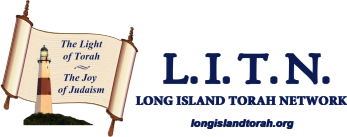Vayikra
Vayikra, which means “He called,” begins with G-d “calling” Moses to speak with Him. This special invitation to talk is a sign of esteem and affection. By contrast, G-d’s conversation with the wicked Bil’am[1] is prefaced by the word “Vayikar” – a term indicating a casual demeanor and an attitude of distaste.
Vayikra details the laws of Temple service, performed in the Mishkan by the Kohanim – priests descended from the Tribe of Levi. The Kohanim were charged with the daily tasks of lighting the Menorah, burning the incense and offering sacrifices on the Altar. The Torah catalogues various types of sacrifices: mandatory and voluntary; communal and private; atonement for sins and expressions of thanksgiving. A summary of these categories is recited daily by many Jews in the “Korbanos” section of the morning prayers.
Today, in the absence of the Holy Temple, Jewish tradition teaches that our prayers take the place of sacrifices. With no Sanctuary to visit, we are charged with making our homes and synagogues into holy places suitable to host G-d’s Presence.
Click below to open a printable pdf
Vayikra details the laws of Temple service, performed in the Mishkan by the Kohanim – priests descended from the Tribe of Levi. The Kohanim were charged with the daily tasks of lighting the Menorah, burning the incense and offering sacrifices on the Altar. The Torah catalogues various types of sacrifices: mandatory and voluntary; communal and private; atonement for sins and expressions of thanksgiving. A summary of these categories is recited daily by many Jews in the “Korbanos” section of the morning prayers.
Today, in the absence of the Holy Temple, Jewish tradition teaches that our prayers take the place of sacrifices. With no Sanctuary to visit, we are charged with making our homes and synagogues into holy places suitable to host G-d’s Presence.
Click below to open a printable pdf
| vayikra_snapshot_and_closer_look_template_final.pdf | |
| File Size: | 911 kb |
| File Type: | |

